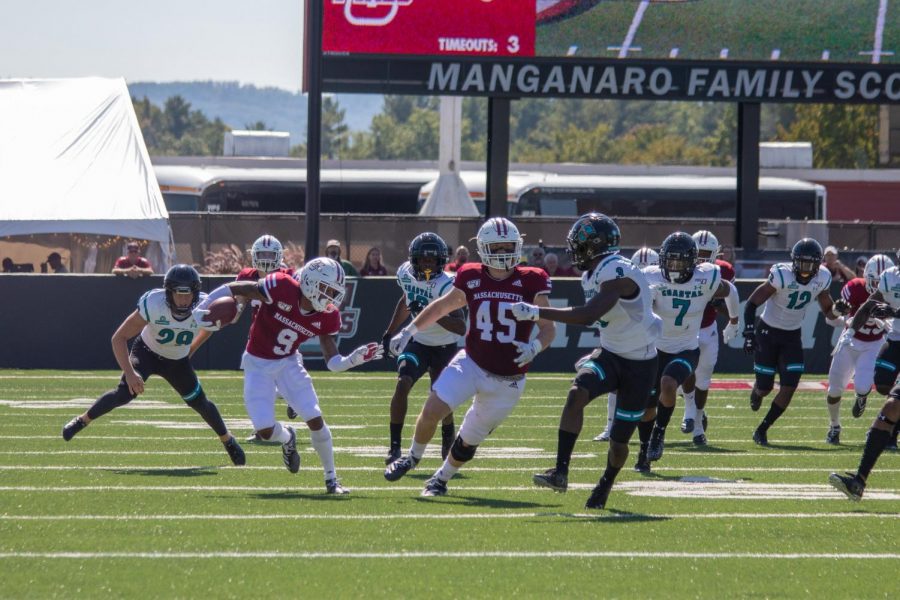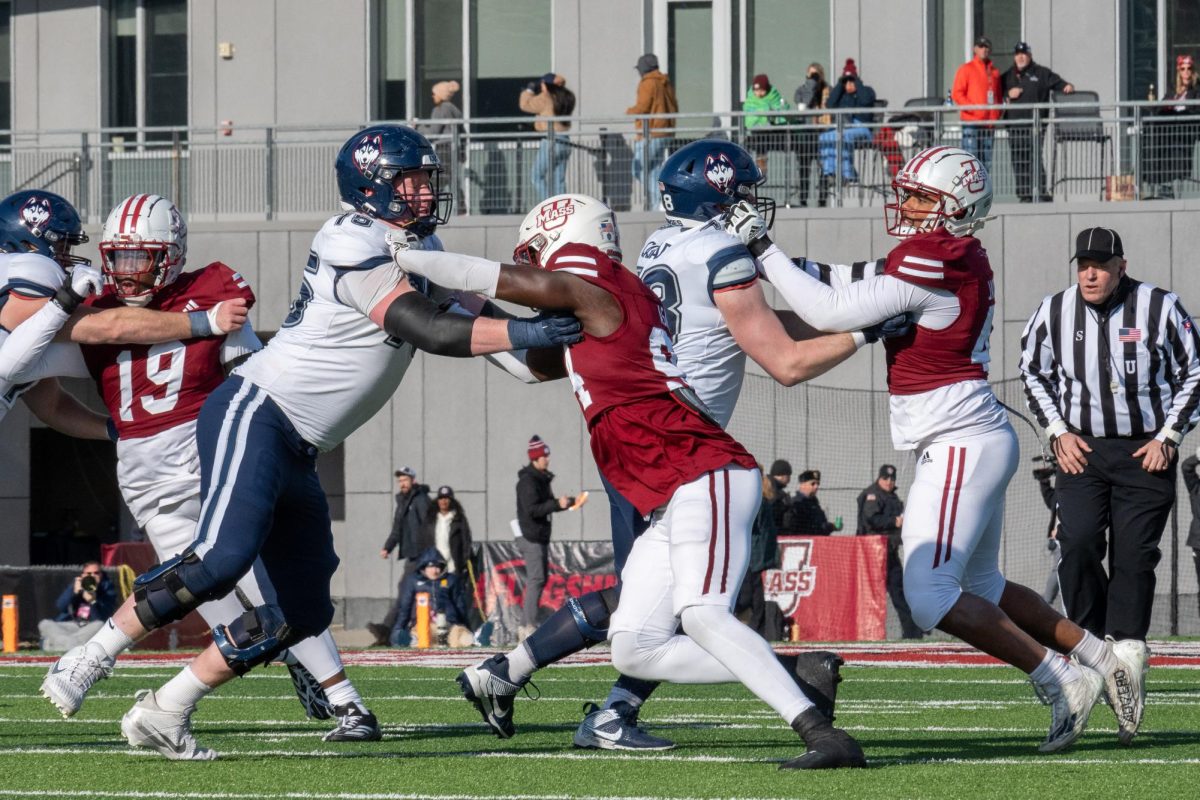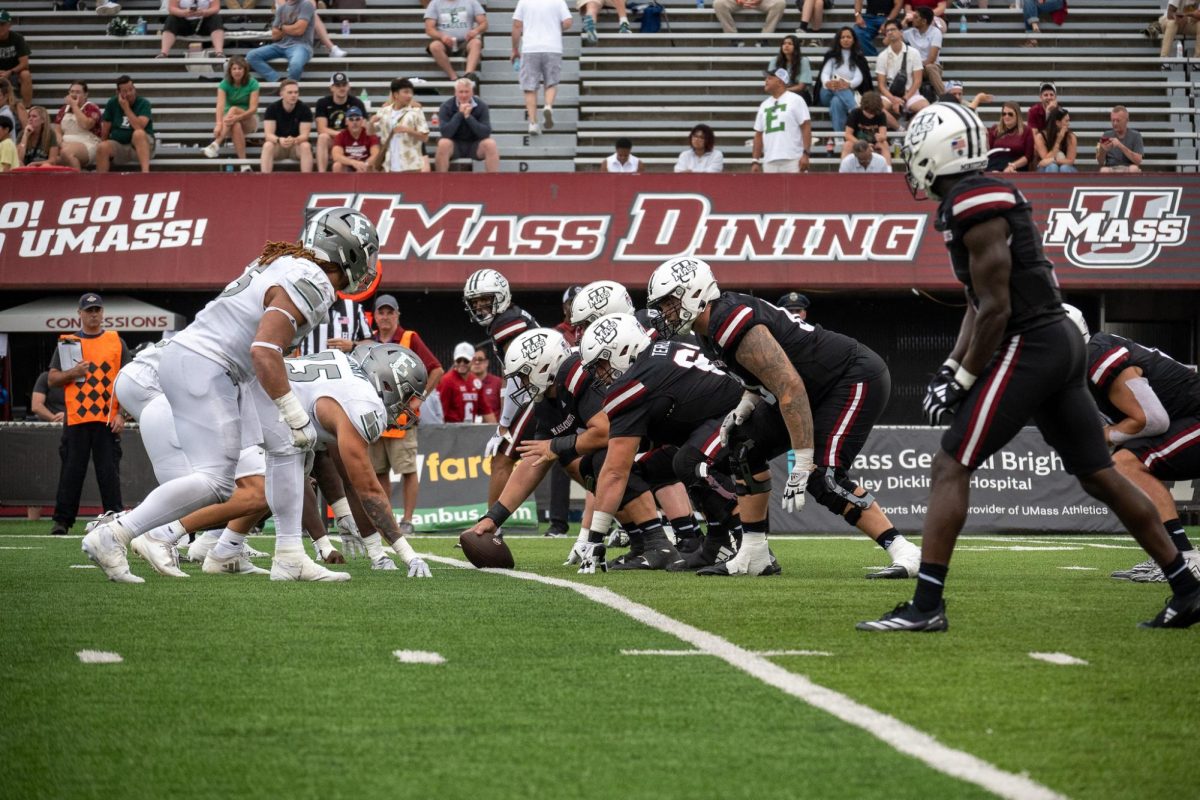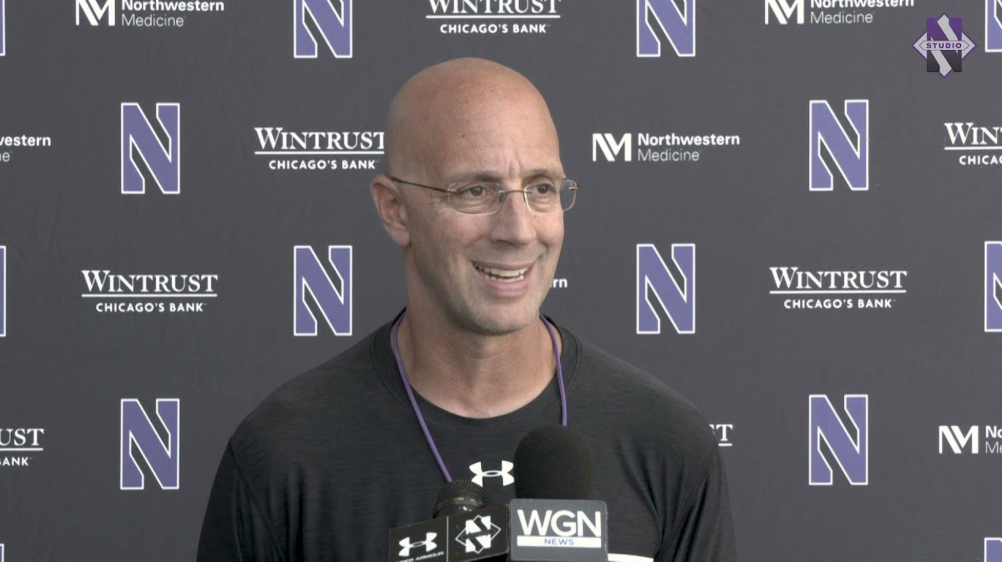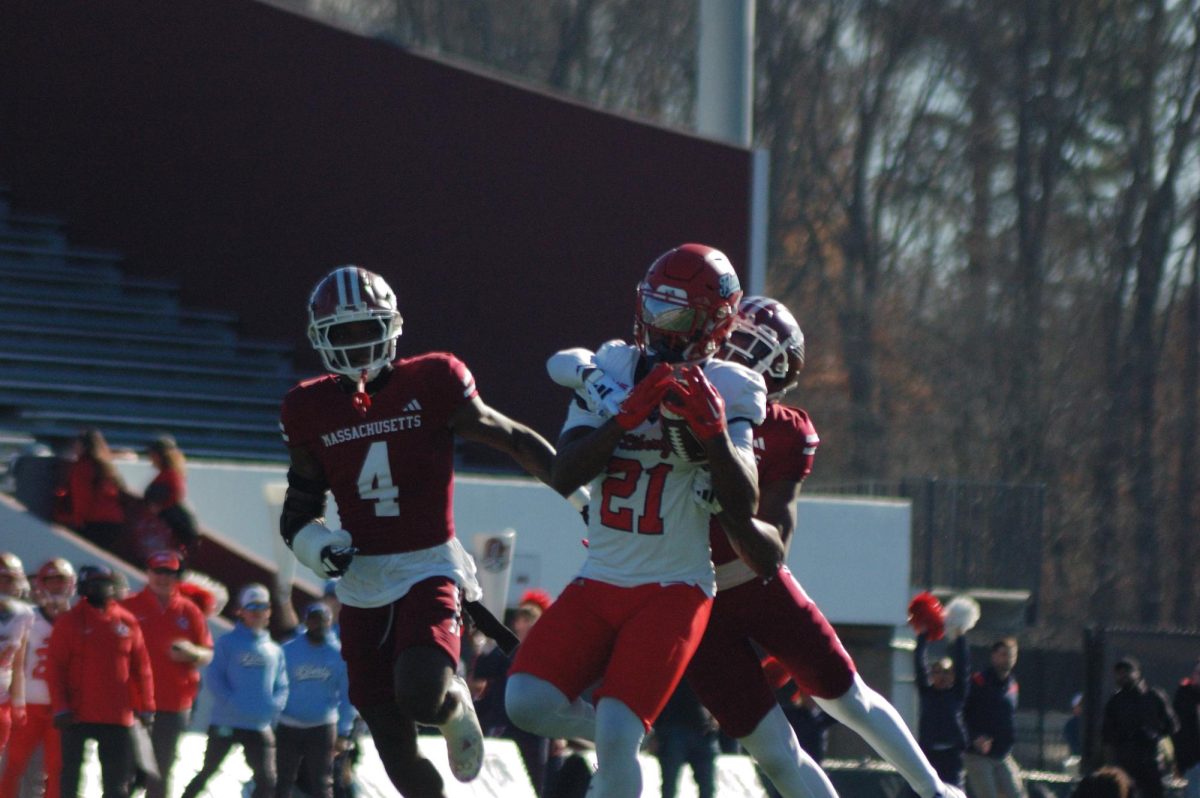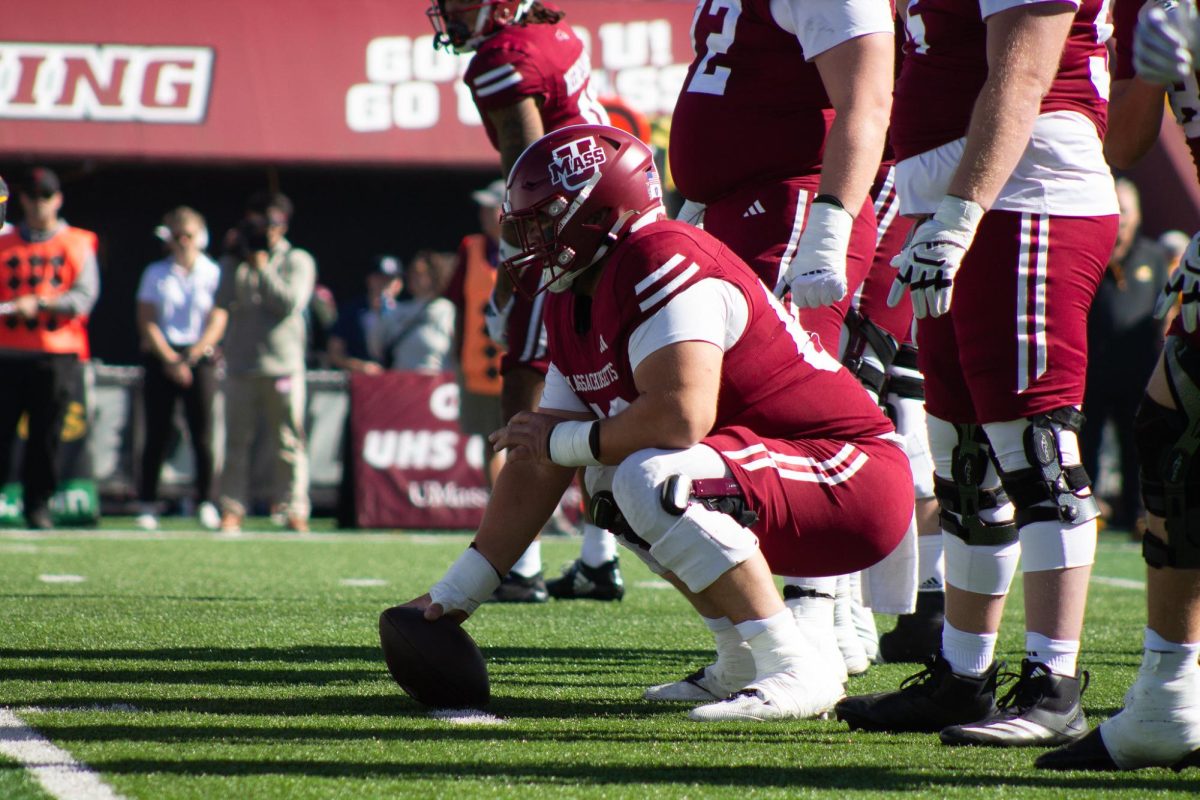In early August, University of Massachusetts Athletic Director Ryan Bamford told Minutemen fans that the athletics department was facing a “considerable reduction” of about $5 million to its upcoming budget. While this deficit could be supplemented by an upcoming football season slated to begin in October, the department still has difficult decisions to make as it enters a period of financial instability.
“We’ve asked our coaches to really take a hard look at what they really need this year for your programs to be successful,” said Finance Director Sean Quinn . “So we were able to realize a number of cuts in different areas.”
According to Quinn, the department operates off of a zero-based budget model in which all expenses are reset at the beginning of each period. The three main areas of expenses are operating day-to-day budgets, scholarships and personnel.
While the department is honoring all scholarships for eligible student-athletes, including all national letters of intent, the personnel cuts have been drastic.
Described as “significant cost containment measures” in a press release from the athletics department, 57 staff members are either being furloughed or seeing a significant reduction in their work hours. In consideration of the department’s deficit, which could increase by $2 million to $3 million depending on scheduling adjustments, Bamford characterized these decisions as “unavoidable.”
“From a furlough perspective, we have been in line with what the campus as a whole has done,” Quinn said.
Outside of these personnel cuts, the department will realize savings as a result of the NCAA moratorium in place for recruiting and the travel pods that the Atlantic-10 Conference plans to utilize. Additionally, 92 percent of coaches and non-unionized employees agreed to take voluntary pay cuts ranging from two to 10 percent that helped the department earn approximately $370,000 worth of savings.
One of the teams that has been most negatively impacted by this situation is the football program, whose record-setting $1.9 million payday from the University of Auburn as a result of the cancellation of their scheduled contest this season is in jeopardy. Besides the recent news that the team will begin playing in October, the football program, which won just one game last year, faces serious questions about its financial viability at UMass going forward.
“When Ryan Bamford was hired, he made a pledge to the chancellor that the University’s support to football was something that he planned to decrease over time, and that has happened,” Quinn said. “We’ve been able to increase other revenue streams while being fiscally responsible to decrease the general University support for the football team.”
One of the ways in which this financial stress was reduced on the program was the Flagship Forward campaign held in the first week of August. This charitable campaign was a resounding success for the athletics department and its teams, raising over $650,000 in just five days. Thirteen out of the 17 athletics programs reached their stated goal, with the football team’s $130,000 worth of donations exceeding every other program.
“I didn’t really know what to expect,” Quinn said of the potential of the campaign. “But the results absolutely exceeded my expectations.”
One of the main reasons for the success of this campaign was the commitment level of coaches to their fundraising efforts. Coaches went on Zoom meetings with alumni, which served as a social gathering, in an address to the state of their programs and as a sales pitch.
“It was really good that our coaches were so engaged in the process and really put a lot of thought into their statements,” Quinn said. “That’s what made [the campaign] so successful – the accessibility of the coaches and their communication was just great.”
The donations put a significant dent in the department’s upcoming deficit, as the money raised would cover about 13 percent of the budget’s projected shortfall of $5 million. However, it should be noted that these fundraising figures will be going to individual teams instead of the department as a whole.
Specifically, there were a few teams that raised significantly more than the goals listed on the campaign — most notably the men’s lacrosse team. Despite deciding on a goal of $25,000, it accumulated more than four times that amount over the course of the campaign.
“In general, the men’s lacrosse program has a strong history of being really great on the fundraising front, so that foundation was certainly there,” Quinn said. “We made the call, and they answered.”
When addressing the budget issues, Bamford closed his statement by emphasizing that the department will overcome this adversity and be “stronger than ever before.” Beyond an increase in revenue, Flagship Forward was indicative of the support that the athletics department has to help them climb out of this deep hole.
“I’m thinking to myself, ‘When is a good time to ask people for money?’” Quinn said. “It’s a worldwide pandemic, the unemployment statistics in this country are high, I don’t know what we’re going to get. But to get $650,000… it’s a great testament to our fundraising staff and our coaches for putting us in a position to be successful, and it’s certainly a tremendous statement by all of our supporters.”
Freeman Alfano can be reached at [email protected]. Follow him on Twitter @freemanalfano.

